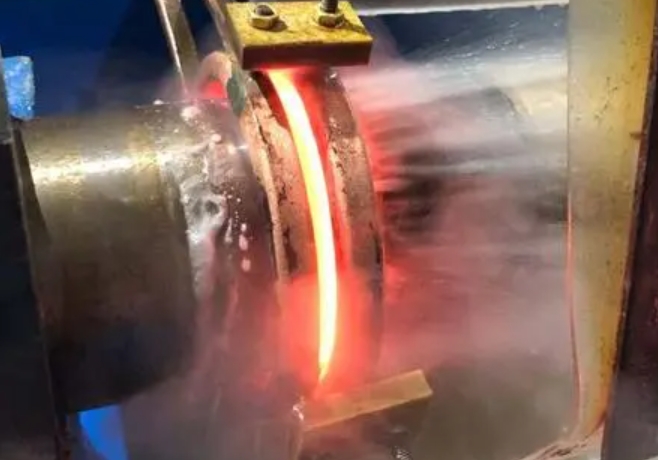- 29
- Dec
Okwu Mmalite nke elu ugboro quenching akụrụngwa
Okwu Mmalite nke akụrụngwa na -emenyụ ọkụ ugboro ugboro
①. What is high frequency quenching equipment?
High-frequency quenching equipment is an induction heating equipment with a current frequency of 30KHZ~100KHZ, which is used for local rapid heating of the workpiece surface to obtain a hardened layer.
②. High-frequency quenching equipment can heat all metal materials?
High-frequency quenching equipment is suitable for heating metal materials with high resistivity. The resistivity of commonly used metal materials at 20 degrees is: silver (1.6), copper (1.7), gold (2.4), aluminum (2.7), zinc (5.2), tungsten (5.7), iron (9.7), platinum (10.6 ), tin (11), lead (21).
③. High-frequency quenching equipment is used for steel quenching.
All steels can basically be surface quenched, such as carbon steel, alloy steel, tool steel, spring steel, etc., but the specific process of surface quenching is different due to the difference in carbon content.
④, the application of high frequency quenching equipment:
The current frequency of high-frequency quenching equipment is usually 30KHZ~100KHZ, and the depth of the hardened layer is 0.5~2 mm, which can be used for surface quenching of gears, cylinder liners, cams, shafts and other parts;
⑤, the advantages of high frequency quenching equipment:
The heating speed of the high frequency quenching equipment is fast. After quenching, fine acicular martensite can be obtained on the surface of the workpiece, which is 2-5HRC higher than that of ordinary quenching. Moreover, there is compressive stress on the surface after quenching, and the wear resistance and fatigue resistance are significantly improved. , the notch sensitivity is small.
⑥ Disadvantages of high frequency quenching equipment:
Quenching inductors are difficult to manufacture, and the quenching process for complex workpieces is difficult to meet the process requirements, and is only suitable for mass production of workpieces with standard shapes and relatively simple shapes.
⑦. What are the fault alarms of high frequency quenching equipment?
The high-frequency quenching equipment has various automatic protection functions such as overvoltage, overcurrent, voltage limiting, current limiting, water cutoff, and phase sequence automatic identification. The faults that can be displayed on the control panel are: 1. Lack of phase; 2. Lack of water; 3 , overvoltage; 4, overcurrent.

